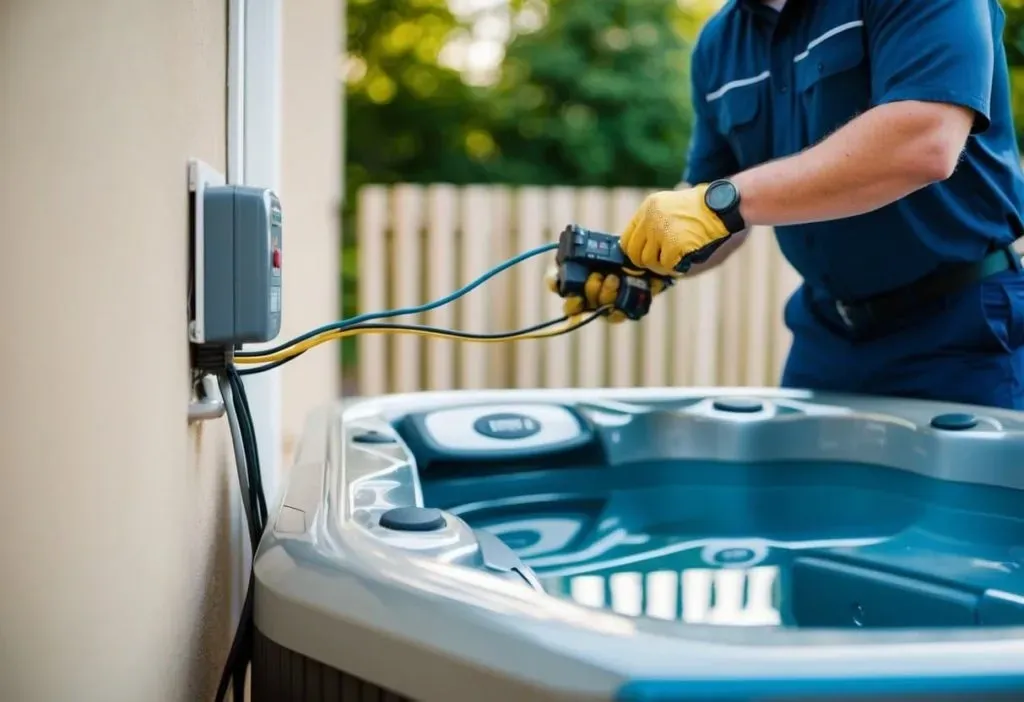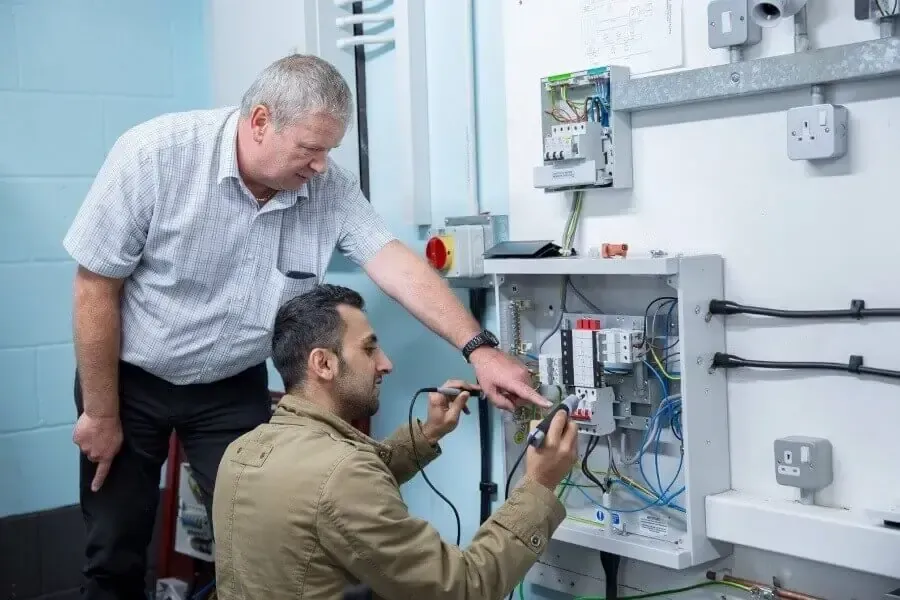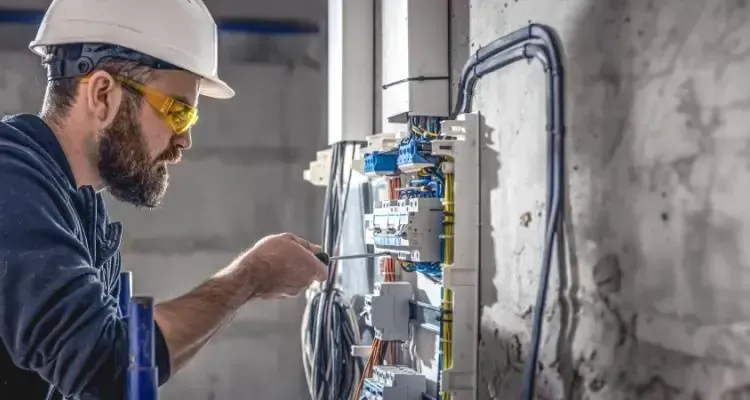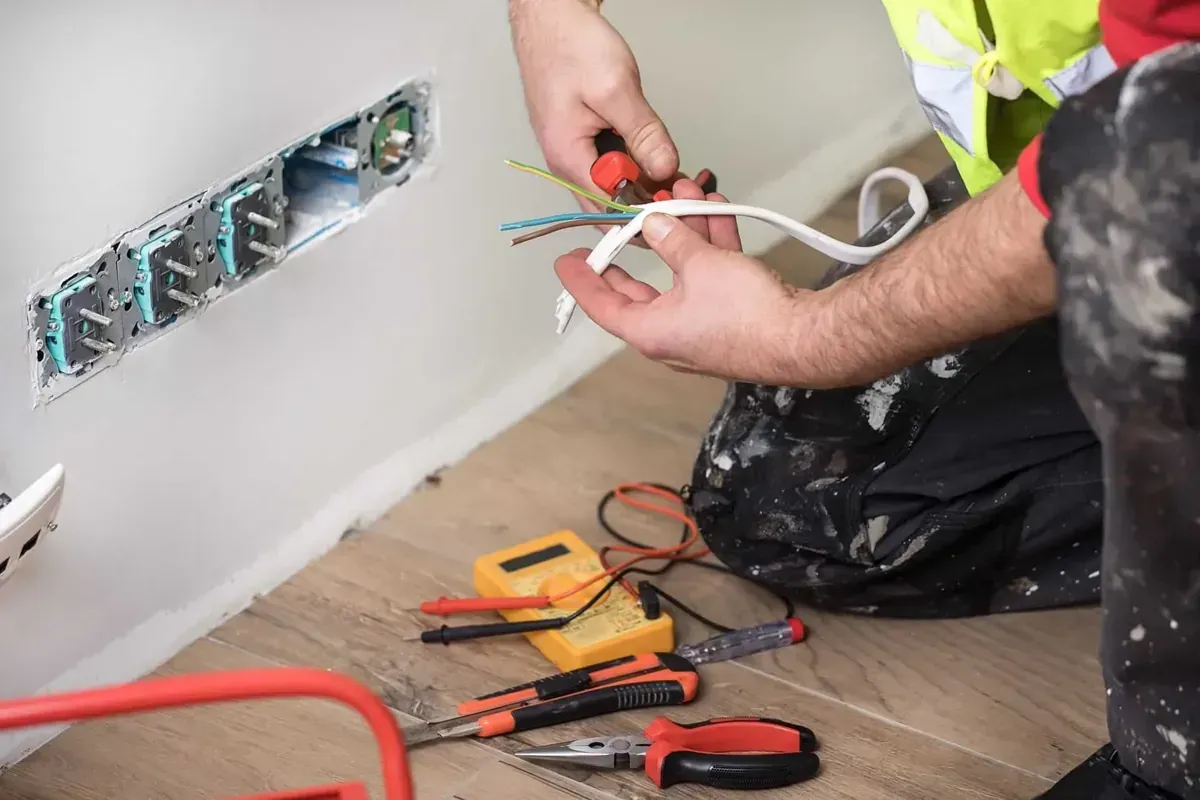The Hidden Risks of Improper Hot Tub Electrical Hookups in Throop
A hot tub can transform your backyard into a peaceful retreat. It’s a place to unwind after a long day, ease sore muscles, and spend quality time with loved ones. But while setting up a hot tub might seem simple, just fill it with water and turn it on, the electrical hookup is where things often go wrong. Improper wiring is one of the most serious mistakes a homeowner can make, and it can lead to fires, electrocution, or expensive damage.
Many homeowners in Throop don’t realize that hot tubs need specialized electrical connections that are very different from standard household appliances. Understanding these differences and potential risks helps you protect both your family and your investment.
Why Hot Tub Electrical Systems Are Different
Hot tubs need a lot of electrical power to run their heaters, pumps, jets, and lights. Unlike plugging in a lamp or television, hot tubs typically require a dedicated 240-volt circuit with specific amperage requirements. This means they need their own separate electrical line running directly from your home's main electrical panel.
The combination of water and electricity makes hot tubs particularly dangerous if not installed correctly. According to the Consumer Product Safety Commission, improper electrical installations contribute to hundreds of spa-related injuries each year. Most hot tubs draw between 30 to 60 amps of electricity, which is comparable to running an electric dryer continuously.
Ground Fault Circuit Interrupters: Your First Line of Defense
One of the most important safety features for any hot tub installation is a Ground Fault Circuit Interrupter, or GFCI. This device monitors the electrical current flowing to your hot tub and shuts off power immediately if it detects even a small imbalance that could indicate electricity is leaking into the water.
Without a properly installed GFCI, a person using the hot tub could receive a fatal electric shock. Unfortunately, some installations skip this crucial safety device or install it incorrectly, leaving users vulnerable to electrocution.
Inadequate Wiring: A Recipe for Disaster
Using the wrong wire size for a hot tub installation is more common than you might think, but it is extremely dangerous. A wire that is too thin for the electrical load can overheat, melt the insulation, and potentially start a fire inside the walls.
The National Fire Protection Association reports that electrical failures are a leading cause of home fires, with many resulting from undersized wiring. Professional electricians calculate the correct wire size based on the power requirements and the distance from the electrical panel. For example, a 50-amp hot tub circuit requires 6-gauge copper wire, while a 60-amp circuit needs 4-gauge wire to operate safely.
Distance and Bonding Requirements

Pennsylvania electrical codes, which apply to Throop installations, require that the disconnect box be located at least five feet from the hot tub but no more than fifty feet away. This placement allows quick access during emergencies while maintaining a safe distance from the water.
Bonding is another important safety step that many DIY installations overlook. Bonding connects all metal components around the hot tub to create a common electrical potential. This includes the hot tub’s frame, nearby fencing, metal pipes, and any other conductive materials. Without proper bonding, voltage differences can build up between metal objects. Touching two unbonded surfaces at the same time can complete an electrical circuit and cause a severe shock.
Outdoor Installation Challenges in Throop
Installing hot tubs outdoors presents additional challenges. Throop’s cold winters, snow, and humid summers create difficult conditions for electrical systems. Freeze-thaw cycles can damage improperly installed conduit and wiring, while moisture and heat can cause corrosion in poorly sealed electrical boxes.
Buried electrical lines must be installed at the correct depth and properly protected. In most cases, conduit should be buried at least 18 inches deep. If installed too shallow, someone digging in the yard could accidentally cut the cable, leading to serious danger.
Permit and Inspection Requirements
In Throop and nearby areas of Lackawanna County, homeowners must obtain an electrical permit for hot tub installations. Skipping this step can lead to significant problems. Unpermitted work can void your homeowner’s insurance, create legal liability if someone is injured, and even lower your home’s value during a sale.
Electrical inspections ensure that installations meet safety standards. Inspectors verify the wire size, GFCI installation, bonding, grounding, and many other safety details. These inspections catch mistakes before they become dangerous.
Warning Signs of Improper Installation
If your hot tub is already installed, watch for these warning signs that may indicate electrical issues:
- The GFCI trips frequently
- You feel a tingling sensation in the water
- Lights in your home flicker when the hot tub runs
- The disconnect box feels warm or has a burning smell
- Corrosion or moisture is visible near electrical components
If any of these symptoms appear, contact a licensed electrician immediately.
Common Installation Mistakes
The most common mistakes in hot tub electrical installations include using standard outlets instead of dedicated circuits, skipping the disconnect box, installing the GFCI too close or too far from the hot tub, using the wrong conduit type, and forgetting to properly ground the system. Each of these errors increases the risk of shock or fire.
Seasonal Considerations for Throop Homeowners
Winter cold can cause moisture inside electrical components to freeze and expand, damaging connections. Summer humidity can accelerate corrosion. Spring and fall rains require proper drainage around electrical equipment to prevent water from pooling near the disconnect box.
Protecting Your Family and Investment
A hot tub is a valuable feature for your home and family. Protecting that investment starts with hiring qualified professionals who understand local electrical codes and weather conditions. Homeowners in Throop who prioritize proper installation enjoy peace of mind, safety, and long-lasting performance from their hot tubs.
Conclusion
Installing a hot tub can transform your backyard into a relaxing retreat, but the safety and performance of your system depend entirely on proper electrical work. Improper hookups not only risk electrical failures but also endanger lives and property. By choosing professional installation, you ensure your hot tub operates safely, efficiently, and in compliance with all electrical codes. Homeowners in Throop can enjoy peace of mind knowing their investment is protected when the job is handled by experienced, licensed electricians. Don’t compromise on safety. Trust experts like Bee-lectric to deliver reliable hot tub electrical installation that keeps your family safe and your relaxation worry-free.
Professional Hot Tub Electrical Installation in Throop
Enjoy your hot tub safely with expert electrical installation. Bee-lectric provides licensed, code-compliant hot tub and spa wiring services throughout Throop and Lackawanna County. Our experienced electrical contractors handle everything, including GFCI protection, proper bonding and grounding, weatherproof conduit installation, and all required permits and inspections.
Whether you are installing a new hot tub or need to correct an existing setup, our team ensures everything is done safely and efficiently. We focus on quality, reliability, and your family’s protection.
Call Bee-lectric today at (570) 525-5908 to schedule your professional hot tub electrical installation in Throop.



